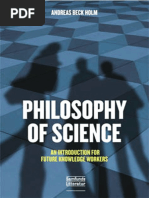
Core Questions in Philosophy. SECOND EDITION. Elliott Sober. UNIVERSITY OF WISCONSIN-MADISON.^^Xfestview f. ^^_^ A Member of the Perseus Books Group. Answers to this question as clubs against evolutionary theory; evolutionists have re- ciprocated. Reliability Maintainability, and Risk, 6th ed., Butterworth-Heinemann, Oxford. Sober, E., 1991. Core Questions in Philosophy, Macmillan, New York. Priyanka Chopra Songs Download Video here. Spetzler, C.S. And Stael von Holstein, C.-A.S., 1975. Probability encoding in decision analysis. 52-8, Engineering Manual EM 1110-2-1411, USACE, Alexandria, VA.
• • • Philosophy (from φιλοσοφία, philosophia, literally 'love of wisdom' ) is the of general and fundamental concerning matters such as,,,,, and. The term was probably coined by (c. 570–495 BCE). Include,,, and systematic presentation. Classic philosophical questions include: Is it possible to and to prove it? Philosophers also pose more practical and concrete questions such as: Is there a best way to live?
Is it better to be (if one can get away with it)? Do humans have? Historically, 'philosophy' encompassed any body of knowledge.
From the time of Ancient Greek philosopher to the 19th century, ' encompassed,, and. For example, 's 1687 later became classified as a book of physics. In the 19th century, the growth of modern led academic philosophy and other disciplines to and specialize. In the modern era, some investigations that were traditionally part of philosophy became separate academic disciplines, including,,, and. Other investigations closely related to art, science, politics, or other pursuits remained part of philosophy.
For example, is objective or subjective? Are there many or just one? Is political a hopeful dream or hopeless fantasy? Major sub-fields of academic philosophy include ('concerned with the fundamental nature of reality and being'), (about the 'nature and grounds of knowledge [and]. Omanathinkalpakshi Serial Wiki here. its limits and validity' ),,,,,, and the history of Western philosophy. Since the 20th century, professional contribute to society primarily as, researchers, and writers.
However, many of those who study philosophy in undergraduate or graduate programs contribute in the fields of law, journalism, politics, religion, science, business and various art and entertainment activities. Contents • • • • • • • • • • • • • • • • • • • • • • • • • • • • • • • • • • • Introduction Knowledge Traditionally, the term 'philosophy' referred to any body of. In this sense, philosophy is closely related to religion, mathematics, natural science, education and politics. Newton's 1687 ' is classified in the 2000s as a book of physics; he used the term ' because it used to encompass disciplines that later became associated with sciences such as, and. In, Philosophy was traditionally divided into three major branches: • ('physics') was the study of the physical world ( physis, lit: nature); • ('ethics') was the study of goodness, right and wrong, beauty, justice and virtue ( ethos, lit: custom); • ('logic') was the study of, causation,,, and other abstract objects (' meta-physika' lit: 'what comes after physics'). This division is not obsolete but has changed.
Natural philosophy has split into the various natural sciences, especially astronomy, physics, chemistry, biology, and cosmology. Moral philosophy has birthed the social sciences, but still includes value theory (including aesthetics, ethics, political philosophy, etc.). Metaphysical philosophy has birthed formal sciences such as logic, mathematics and philosophy of science, but still includes epistemology, cosmology and others.
Philosophical progress Many philosophical debates that began in ancient times are still debated today. And others claim that no has occurred during that interval. And others, by contrast, see progress in philosophy similar to that in science, while Talbot Brewer argued that 'progress' is the wrong standard by which to judge philosophical activity. Historical overview In one general sense, philosophy is associated with wisdom, intellectual culture and a search for knowledge. In that sense, all cultures and literate societies ask philosophical questions such as 'how are we to live' and 'what is the nature of reality'.